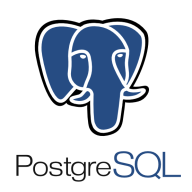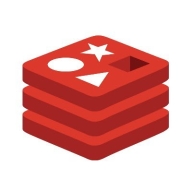

PostgreSQL and Redis compete in the database solution category, with PostgreSQL excelling in feature depth and standards compliance, while Redis leads in speed with its in-memory data handling capabilities.
Features: PostgreSQL supports advanced SQL standards, offers scalability, and ensures data integrity with full ACID compliance. Its robust indexing and extensibility, alongside support for multiple programming languages, are significant strengths. Redis is valued for its speed and efficiency, particularly in real-time processing, and benefits from simple yet effective data structures.
Room for Improvement: PostgreSQL could benefit from enhanced performance for read-heavy tasks, improved documentation, and simplified scalability. Redis users seek GUI tools, better multi-thread capabilities, and more comprehensive documentation for complex use cases. Both platforms can improve integration with other technologies and support for complex queries and data structures.
Ease of Deployment and Customer Service: Both PostgreSQL and Redis are deployable on-premises and in various cloud setups. PostgreSQL relies heavily on community support due to its open-source nature, and while formal technical support is lacking, its support community is strong. Redis also lacks formal customer service but benefits from an active support community. Both platforms are ideal for environments favoring open-source systems, leveraging community and self-support for operations.
Pricing and ROI: PostgreSQL and Redis are open-source, providing cost-effective solutions compared to proprietary counterparts. Postgres, available under a BSD license, provides ample features cost-free, making it favorable for businesses looking to reduce database expenses without compromising functionality. Though more resource-intensive due to its RAM reliance, Redis remains an affordable option, especially suited for applications that need quick data access. The no-cost licensing of both platforms contributes to a strong ROI by meeting diverse business needs with robust feature sets.
| Product | Market Share (%) |
|---|---|
| Redis | 5.0% |
| PostgreSQL | 5.4% |
| Other | 89.6% |


| Company Size | Count |
|---|---|
| Small Business | 58 |
| Midsize Enterprise | 26 |
| Large Enterprise | 45 |
| Company Size | Count |
|---|---|
| Small Business | 11 |
| Midsize Enterprise | 3 |
| Large Enterprise | 8 |
PostgreSQL is a versatile and reliable database management system commonly used for web development, data analysis, and building scalable databases.
It offers advanced features like indexing, replication, and transaction management. Users appreciate its flexibility, performance, and ability to handle large amounts of data efficiently. Its robustness, scalability, and support for complex queries make it highly valuable.
Additionally, PostgreSQL's extensibility, flexibility, community support, and frequent updates contribute to its ongoing improvement and stability.
Redis offers high-speed, in-memory storage, renowned for real-time performance. It supports quick data retrieval and is used commonly in applications like analytics and gaming.
Renowned for real-time performance, Redis delivers high-speed in-memory storage, making it a favorite for applications needing quick data retrieval. Its diverse data structures and caching capabilities support a broad array of use cases, including analytics and gaming. Redis ensures robust scalability with master-slave replication and clustering, while its publish/subscribe pattern renders it reliable for event-driven applications. The solution integrates smoothly with existing systems, minimizing performance tuning needs. Although documentation on scalability and security could be improved, Redis remains cost-effective and stable, commonly utilized in cloud environments. Enhancing integration with cloud services like AWS and Google Cloud and refining GUI may improve usability.
What are the key features of Redis?Redis finds application across industries for tasks like caching to improve application performance and speed, minimizing database load. It enables real-time processing for session storage, push notifications, and analytics. As a messaging platform, Redis handles high traffic and supports replication and clustering for cross-platform scalability.
We monitor all Vector Databases reviews to prevent fraudulent reviews and keep review quality high. We do not post reviews by company employees or direct competitors. We validate each review for authenticity via cross-reference with LinkedIn, and personal follow-up with the reviewer when necessary.